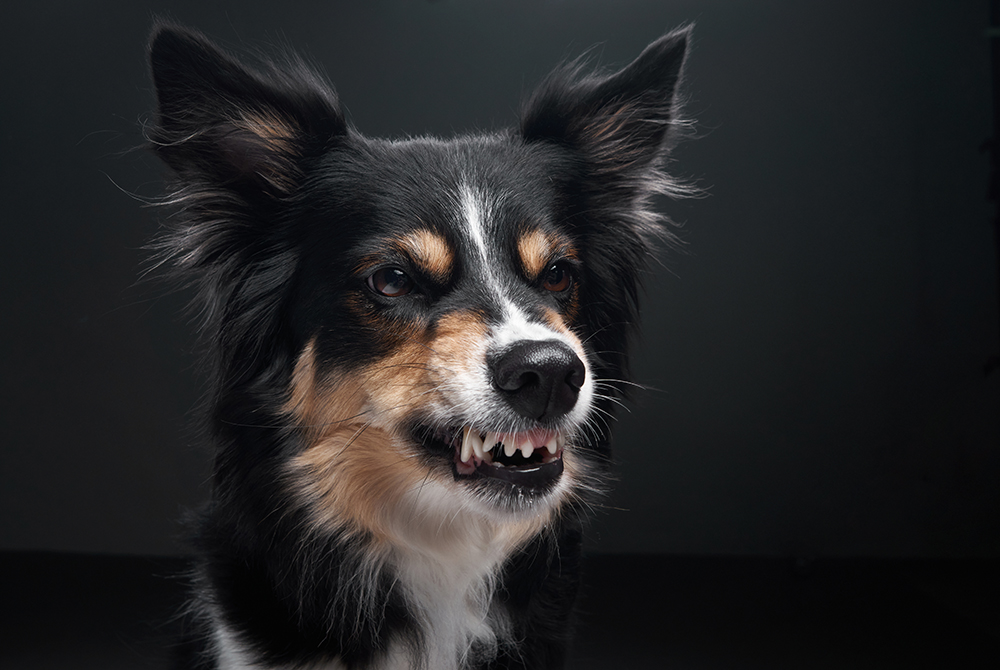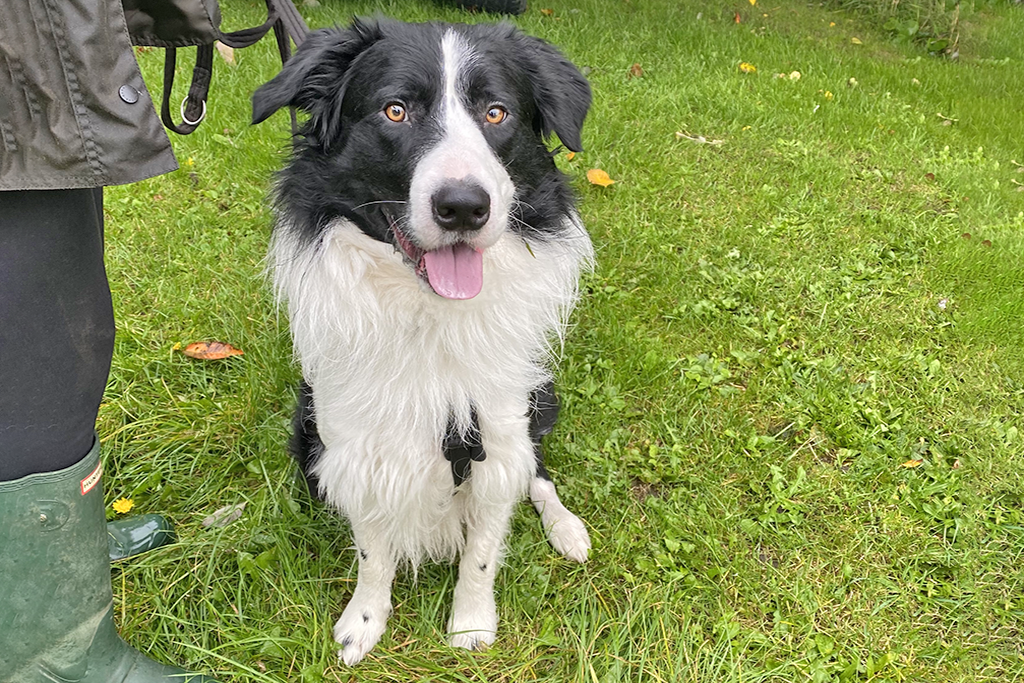Border Collie puppies can be aggressive due to various factors. This behavior can worry many new pet owners.
Understanding why your Border Collie puppy is showing aggression is crucial. Puppies often display aggression because of fear, pain, or frustration. Early socialization and proper training can help manage this behavior. Recognizing the triggers that cause aggression in your puppy is the first step.
It helps to address the root causes effectively. Puppies, like children, need guidance to grow into well-mannered adults. By identifying the reasons behind your puppy’s aggression, you can take steps to correct it. This blog will explore common causes and offer practical solutions. Let’s help your Border Collie become a happy, well-adjusted pet.

Credit: www.youtube.com
Common Signs Of Aggression
Understanding the common signs of aggression in your Border Collie puppy is vital. Recognizing these signs early can help you address any issues before they become serious. In this section, we will explore two of the most common signs of aggression: growling and snapping, and biting and nipping.
Growling And Snapping
Growling and snapping are clear signs of aggression in puppies. A growl can be a warning signal. Your puppy might feel threatened or scared. Snapping can follow if the warning is ignored. This behavior is often a way to protect themselves. It can also be a sign of discomfort or pain.
To manage this behavior, observe what triggers the growling. Remove the trigger if possible. Provide a safe space for your puppy. Training and socialization can help reduce growling and snapping over time.
Biting And Nipping
Biting and nipping are common in young puppies. This behavior can be playful. But it can also be a sign of aggression. Puppies explore the world with their mouths. They may bite or nip when they are excited or scared. Consistent training is key to managing biting and nipping.
Here are some tips to address this behavior:
- Redirecting: Use toys to redirect their biting.
- Socialization: Expose your puppy to different environments and people.
- Positive Reinforcement: Reward good behavior with treats and praise.
By recognizing and addressing these signs early, you can help your Border Collie puppy develop into a well-behaved adult dog.
Possible Causes
Is your Border Collie puppy showing signs of aggression? Understanding the possible causes can help address the issue. Many factors can contribute to aggressive behavior in puppies. Let’s explore some of the common reasons.
Lack Of Socialization
Socialization is crucial for puppies. Without it, they may react aggressively to new people or animals. Border Collies are very intelligent and energetic. They need to interact with others from a young age. Failure to do so can result in fear and aggression.
Fear And Anxiety
Puppies may act aggressively out of fear. They might feel threatened by new environments. Loud noises or sudden movements can trigger anxiety. Border Collies are sensitive and may react strongly to stress. Understanding their triggers can help manage their behavior.
Genetic Factors
Many Border Collie owners wonder why their puppy shows aggressive behavior. One key reason is genetic factors. Genetics play a big role in shaping a dog’s temperament. Understanding the genetic background of your puppy can help explain certain behaviors.
Inherited Traits
Border Collies have been bred for specific tasks, like herding sheep. This breeding has passed down certain inherited traits. Some of these traits include high energy and strong herding instincts. These traits can sometimes lead to aggressive behavior, especially in young puppies.
Consider the following inherited traits:
- High energy levels
- Strong herding instincts
- Protective nature
These traits are not bad, but they can make a puppy seem aggressive. It’s important to channel these instincts in a positive way.
Breeding Practices
Not all breeders follow the same breeding practices. Some breeders focus on physical traits rather than temperament. This can result in puppies with unpredictable behaviors.
Consider asking your breeder about their practices. Ask about:
- Parent dogs’ temperaments
- Socialization practices
- Health screenings
Good breeders will focus on both health and temperament. They will ensure puppies are well-socialized from a young age.
By understanding these genetic factors, you can better manage your Border Collie puppy’s aggression. Knowledge is the first step in creating a happy and well-behaved dog.
Environmental Influences
Understanding why your Border Collie puppy behaves aggressively can be challenging. Several factors contribute to this behavior. One of the key aspects to consider is environmental influences. The environment your puppy grows up in plays a critical role in shaping its behavior.
Living Conditions
Your puppy’s living conditions significantly impact its behavior. A cramped or chaotic environment can lead to stress and aggression. Ensure your puppy has enough space to move around and play. A calm and organized living space promotes a sense of security. This can reduce aggressive tendencies.
Proper socialization also falls under living conditions. Expose your puppy to different environments and situations. This helps it learn how to behave appropriately in various settings. Lack of socialization can cause fear and aggression.
Owner Behavior
Owner behavior is another crucial environmental factor. Puppies look to their owners for cues on how to behave. If an owner is anxious or stressed, the puppy may mirror these emotions. Calm and confident behavior from the owner sets a positive example for the puppy.
Consistent training and positive reinforcement are essential. Inconsistent rules and reactions can confuse the puppy, leading to frustration and aggression. Establish clear boundaries and reward good behavior. This encourages your puppy to act calmly and confidently.
Health Issues
Border Collie puppies are known for their high energy and intelligence. Yet, some may show aggressive behavior, which can be concerning. Often, this aggression stems from underlying health issues. Addressing these health problems can help manage and reduce aggressive tendencies in your puppy.
Pain And Discomfort
Pain can make your Border Collie puppy act aggressively. Puppies cannot communicate their pain verbally, so they may use aggression to express it. Common sources of pain include dental issues, injuries, or digestive problems. Regular vet check-ups can help identify and treat these issues early.
Observe your puppy for signs of discomfort. Limping, whimpering, or avoiding touch might indicate pain. Addressing the root cause can ease your puppy’s distress and reduce aggression.
Neurological Problems
Neurological problems can also cause aggression in Border Collie puppies. These issues affect the brain and nervous system. Conditions like epilepsy or brain tumors can lead to sudden aggressive outbursts. Early diagnosis and treatment are crucial for managing these problems.
Symptoms of neurological problems include seizures, disorientation, or changes in behavior. If you notice these signs, consult your vet immediately. Proper treatment can improve your puppy’s quality of life and reduce aggression.

Credit: collieconsultant.co.uk
Training Techniques
Training your Border Collie puppy can help reduce aggressive behavior. Using the right techniques can make a big difference. Here are some effective methods to consider.
Positive Reinforcement
Positive reinforcement means rewarding good behavior. This can be done with treats, praise, or toys. When your puppy behaves well, give them a reward. This helps them understand what actions are good.
For example, if your puppy sits calmly, give them a treat. If they play gently, praise them or give them a toy. This method is about encouraging good behavior, not just stopping bad behavior.
Consistency is key. Make sure to reward good behavior every time it happens. Over time, your puppy will learn what is expected.
Avoiding Punishment
Punishment can make aggression worse. It may cause fear and confusion. Instead of punishment, focus on redirecting bad behavior.
If your puppy bites, give them a chew toy instead. If they jump on people, teach them to sit. Redirecting helps them learn what they should do.
Keep a calm tone and avoid yelling. This creates a safe environment for learning. Your puppy will respond better to calm and clear directions.
Professional Help
Recognizing the signs of aggression in your Border Collie puppy is crucial. Professional help can make a significant difference. Expert guidance can address the underlying issues and help your puppy develop better behavior.
Behavioral Trainers
Behavioral trainers specialize in understanding and modifying pet behavior. They assess your puppy’s triggers and teach appropriate responses. This helps in reducing aggressive tendencies. With consistent training, your puppy learns positive behavior patterns. This builds a strong foundation for their growth.
Veterinary Assistance
A visit to the vet is essential. Health issues can sometimes cause aggression in puppies. The vet can rule out medical problems that may be affecting behavior. They might suggest treatments or medications if needed. Regular check-ups ensure your puppy’s health and well-being.

Credit: www.reddit.com
Long-term Management
Long-term management is crucial for addressing your Border Collie puppy’s aggressive behavior. Consistent efforts will help ensure a well-behaved and happy dog. There are several key areas to focus on for effective long-term management.
Consistent Training
Consistent training is essential for managing aggression in Border Collie puppies. Use positive reinforcement techniques. Reward good behavior with treats and praise. Ensure training sessions are short and frequent. This keeps your puppy engaged and prevents frustration. Consistency is key. Stick to a routine. This helps your puppy understand expectations. Avoid punishment. It can increase aggression and fear. Instead, redirect unwanted behavior to a positive activity. This builds trust and strengthens your bond.
Regular Exercise
Border Collies are high-energy dogs. Regular exercise is vital for their well-being. Daily physical activity helps reduce aggression. It burns off excess energy. Take your puppy for walks or play fetch. Engage in activities that stimulate both mind and body. Mental exercise is just as important. Puzzle toys and obedience training keep their minds sharp. Boredom can lead to destructive behavior. Keep your Border Collie busy and active. This reduces stress and aggression. A tired dog is a happy dog.
Frequently Asked Questions
Why Is My Border Collie Puppy Biting?
Border Collie puppies often bite due to teething, playful behavior, or lack of socialization. Training and socializing them early can help reduce this behavior.
How Can I Stop My Border Collie From Being Aggressive?
Consistency in training, positive reinforcement, and socializing your Border Collie can help curb aggression. Seek professional help if needed.
Is It Normal For Border Collie Puppies To Be Aggressive?
Mild aggression in puppies is common due to teething and play. Persistent or severe aggression may require professional evaluation.
What Triggers Aggression In Border Collie Puppies?
Border Collie puppies may become aggressive due to fear, lack of socialization, or feeling threatened. Identifying triggers can help manage their behavior.
Conclusion
Understanding your Border Collie puppy’s aggression is key. Patience and training help. Always consult a vet for sudden behavior changes. Socialization plays a big role. Regular exercise and mental stimulation reduce aggression. Consistency is crucial in training. Your puppy can improve with time and effort.
Keep learning and stay patient. A well-behaved dog is worth the work.
